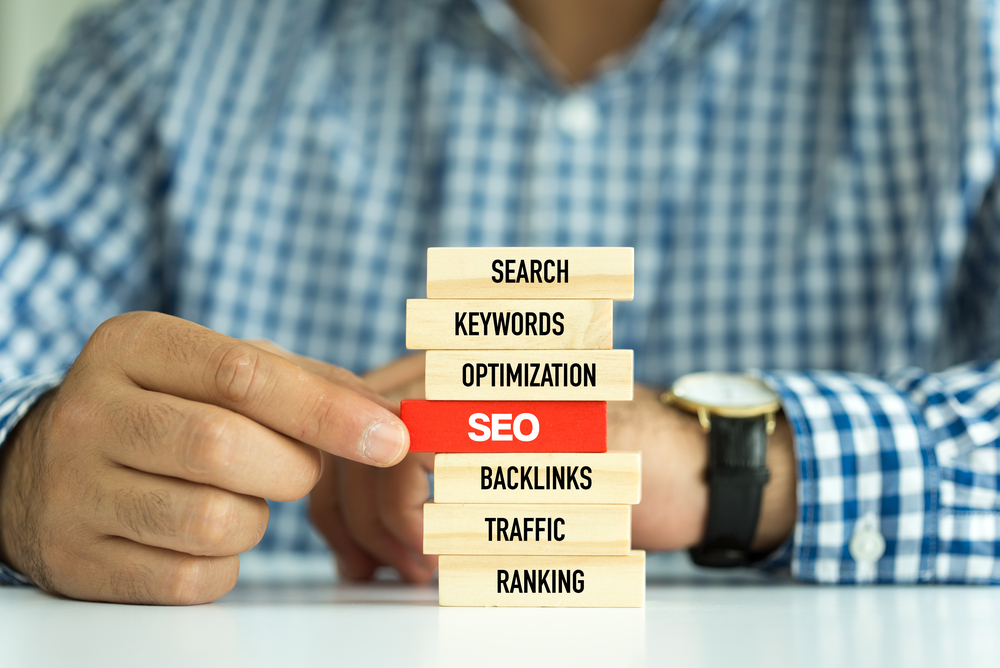
Boost Your Website's Visibility: Essential SEO and Link Building Hacks

Running a website is no longer just about having a fancy design or great content. In today's digital landscape, search engine optimization ( SEO (or SEM) ) and link building are crucial components for boosting your website's visibility. By implementing these essential hacks, you can ensure that your website gets the attention it deserves and stands out among the crowd.
Understanding SEO
SEM/SEO is the process of optimizing your website to rank higher in search engine results pages (SERPs). When someone searches for a specific keyword or phrase, search engines like Google or Bing use complex algorithms to determine which websites should appear at the top.
By incorporating SEO/SEM techniques into your website, you increase the chances of being seen by your target audience. Here are some hacks to get started:
1. Keyword Research
Keywords are the foundation of SEO (search engine optimization) . They are the words or phrases users type into search engines when looking for information. By conducting thorough keyword research, you can identify the terms your target audience is using and create content around those keywords.
Tools like Google Keyword Planner or Moz Keyword Explorer can help you find relevant keywords with a high search volume and relatively low competition. By strategically placing these keywords throughout your website's content, you can signal search engines about the relevance of your site.
For example, if you have an online bakery, incorporating keywords like "best chocolate cake recipe" or "order birthday cake online" can help you attract the right audience.
2. On-Page Optimization
On-page optimization involves optimizing the individual web pages to improve their visibility in search engines. This includes optimizing meta tags, headings, URL structures, and image alt attributes.
When optimizing your website's meta tags, such as the title and meta description, make sure they are concise, descriptive, and contain relevant keywords. This helps search engines understand the content of your pages and display relevant snippets in the search results.
Furthermore, using header tags (H1, H2, H3, etc.) to structure your content not only improves readability but also helps search engines understand the hierarchy of your information. It's an excellent opportunity to include relevant keywords naturally.
3. Content Relevance and Quality
Creating high-quality, relevant content is essential for both user experience and SEO . Search engines prioritize websites that provide valuable and informative content to users. Furthermore, regularly updating your content signals search engines that your website is active and up-to-date.
Ensure that your content includes the keywords you identified during your research. However, avoid keyword stuffing, as this can have a negative impact on your SEO. Instead, focus on creating engaging content that provides value to your audience.
4. Building High-Quality Backlinks
Link building plays a crucial role in SEO. Backlinks are links from other websites that point back to your website. Search engines consider backlinks as votes of confidence, indicating that your website is trustworthy and authoritative.
However, not all backlinks are created equal. Focus on obtaining high-quality backlinks from reputable websites in your industry or niche. This can be achieved through guest blogging, engaging in online communities, or reaching out to influencers for partnerships.
Remember to avoid engaging in black hat SEO practices, such as purchasing low-quality backlinks or participating in link farms. These practices can lead to penalties from search engines and harm your website's visibility.
Frequently Asked Questions
1. How long does it take for SEO to show results?
SEO is a long-term strategy, and it can take several months to see significant results. It depends on various factors, such as your website's age, competition, and the amount of effort put into optimization.
2. Is it necessary to hire an SEO professional?
While it's possible to learn and implement SEO techniques yourself, hiring an SEO professional can be beneficial, especially if you lack the time or expertise. They can provide valuable insights, conduct in-depth keyword research, and keep up with the latest trends and algorithm changes.
3. How often should I update my website's content?
Regularly updating your website's content shows search engines that your website is active and relevant. Aim to update or add new content at least once a month, if not more frequently. This could be in the form of blog posts, new product descriptions, or updated information about your services.
4. Are there any SEO tools I should use?
Yes, there are several SEO tools that can help you optimize your website and track your progress. Some popular ones include Google Analytics, Moz Pro, SEMRush, and Ahrefs. These tools provide insights into keywords, website traffic, backlink analysis, and more.
5. Is SEO a one-time process?
No, SEO is an ongoing process. Search engines continually update their algorithms, and your competitors are constantly optimizing their websites. To maintain and improve your website's visibility, you need to stay updated with the latest SEO trends, monitor your rankings, and adapt your strategy accordingly.
In conclusion, SEO and link building are essential elements in improving your website's visibility. By conducting thorough keyword research, optimizing your web pages, creating high-quality content, and building high-quality backlinks, you can boost your website's chances of ranking higher in search engines. Remember to stay consistent, track your progress, and adapt your strategy as needed to stay ahead of the competition.
Other useful resources
- https://www.seoguru24.com/listing-category/seo-tools/